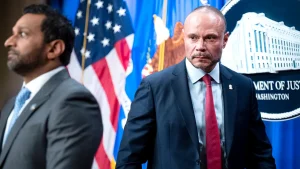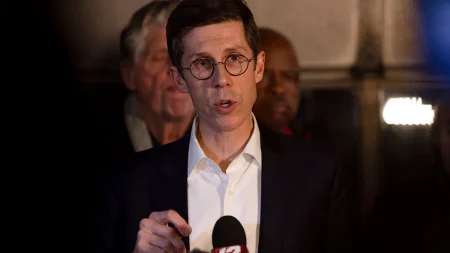Devin Nunes’s trajectory from a prominent figure in the House of Representatives to the helm of Donald Trump’s social media company, Truth Social, marks a significant shift in his career and underscores the increasingly intertwined nature of politics and media in the 21st century. His tenure as chair of the House Intelligence Committee, particularly during the investigations into Russian interference in the 2016 election and Donald Trump’s first impeachment, was marked by controversy and partisan battles. Nunes vehemently challenged the legitimacy of the Russia inquiry, portraying it as a politically motivated attack on the Trump administration, and staunchly defended the president against accusations of wrongdoing. This stance earned him the unwavering support of Trump and his base, while drawing sharp criticism from Democrats and some Republicans who viewed his actions as undermining the integrity of the intelligence community and the impeachment process.
Nunes’s aggressive defense of Trump during these investigations solidified his position as a staunch loyalist and earned him a reputation as a fierce partisan warrior. He consistently questioned the credibility of the intelligence agencies, downplayed the significance of Russian interference, and promoted unsubstantiated counter-narratives. His criticisms extended to the special counsel investigation led by Robert Mueller, which he characterized as a “witch hunt” driven by political bias. This approach, while controversial, resonated with Trump’s supporters who saw Nunes as a defender of the president against what they perceived as unfair attacks from the “deep state” and a hostile media. His public pronouncements and media appearances effectively amplified Trump’s messaging and contributed to a polarized political environment where facts and evidence were often contested along partisan lines.
The culmination of Nunes’s alignment with Trump came with his decision to resign from Congress and take on the role of CEO of Trump Media & Technology Group (TMTG), the parent company of Truth Social. This move signaled a complete embrace of Trump’s media venture, which was launched in the aftermath of the January 6th Capitol attack and Trump’s subsequent ban from major social media platforms. Truth Social was envisioned as a conservative alternative to these platforms, promising free speech and a refuge from what Trump and his supporters perceived as censorship and bias in mainstream media. Nunes’s appointment as CEO underscored the platform’s political underpinnings and its close ties to the former president. His experience in navigating the political landscape and his unwavering loyalty to Trump made him a natural fit for the role, tasked with leading the platform’s growth and navigating the complex challenges of the social media landscape.
Nunes’s transition to the private sector highlights the increasingly blurred lines between politics and media. His deep involvement in the political battles surrounding the Russia investigation and impeachment proceedings now informs his leadership of a social media platform that explicitly caters to a specific political audience. This raises questions about the potential for further polarization and the role of social media in shaping political discourse. Truth Social, under Nunes’s leadership, has positioned itself as a platform for conservative voices and a counterweight to what it perceives as liberal bias in established media outlets. This targeted approach, while appealing to a specific segment of the population, risks further fragmenting the media landscape and reinforcing echo chambers where individuals primarily consume information that confirms their existing beliefs.
The challenges facing Nunes and Truth Social are substantial. Building a successful social media platform requires navigating complex technological, financial, and regulatory hurdles. Furthermore, the platform’s association with a highly polarizing political figure presents unique challenges in attracting a broader audience and achieving mainstream acceptance. While Truth Social has garnered significant attention from Trump’s supporters, its long-term viability remains uncertain. The platform faces competition from other conservative-leaning social media platforms and must contend with the potential for further regulation and scrutiny, particularly given its close ties to a former president. Nunes’s experience in politics may prove valuable in navigating these challenges, but success in the social media arena requires a different set of skills and strategies than those honed in the halls of Congress.
Ultimately, Devin Nunes’s journey from Congressman to CEO of a social media company reflects the evolving media landscape and the increasing intersection of politics and technology. His controversial tenure as House Intelligence Committee chair, his staunch defense of Donald Trump, and his subsequent leadership of Truth Social all contribute to a broader narrative about the changing dynamics of information dissemination and the challenges of navigating a polarized political environment. The success or failure of Truth Social under Nunes’s leadership will serve as a case study in the evolving relationship between politics, media, and technology, and the ongoing debate about free speech, censorship, and the role of social media in shaping public discourse.









